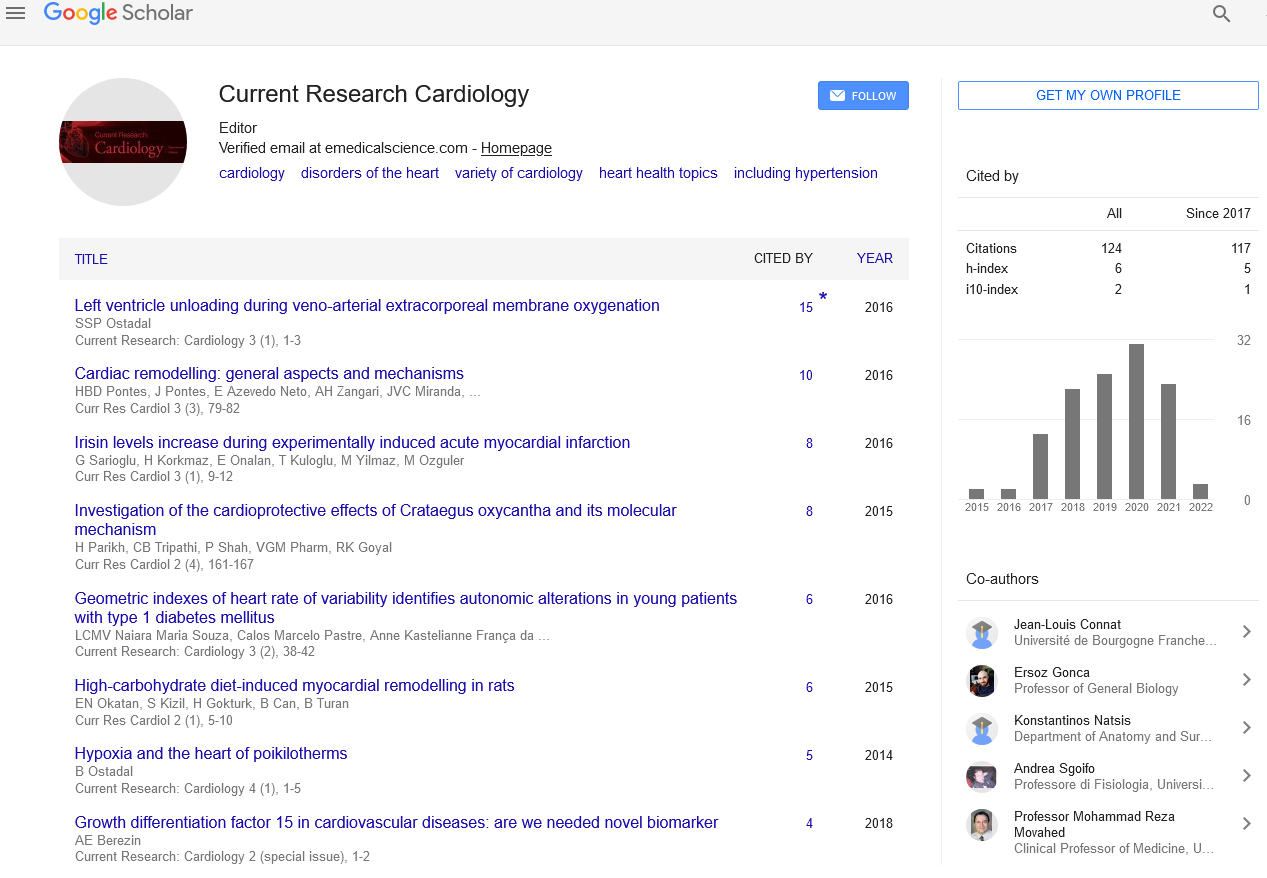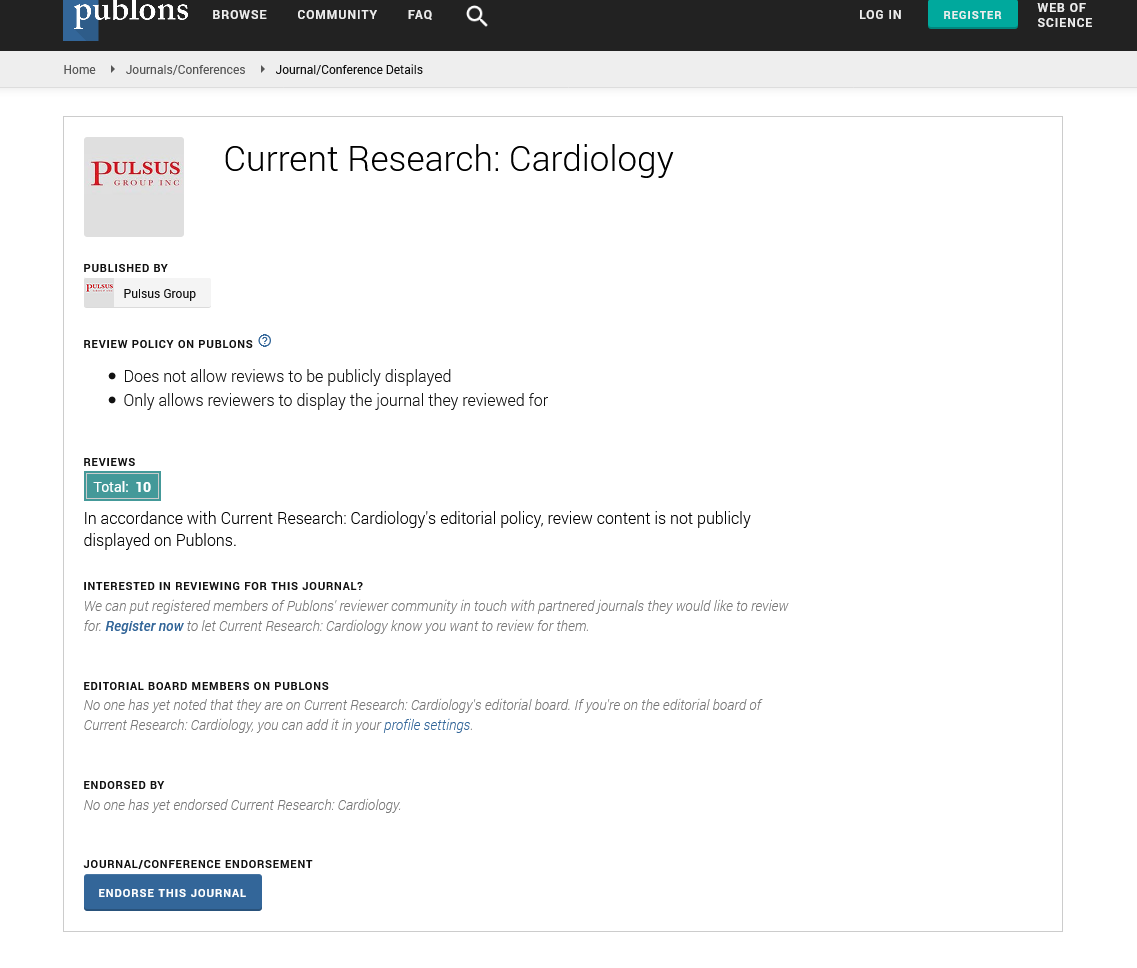
Sign up for email alert when new content gets added: Sign up
Can we predict medium term mortality from transvenous lead extraction pre-operatively?
2nd Global Heart Congress
November 21-22, 2018 Osaka, Japan
Nadir Elamin, Khan M, Bowes R, Sahu J, Sheridan P, Rogers D, Kyriacou N, Kelland N and Lewis N
Sheffield Teaching Hospitals, UK
ScientificTracks Abstracts: Curr Res Cardiol
Abstract :
Introduction & Aim: Lead extraction can be a high-risk procedure, but the outcome of cardiac device infection without intervention is poor. Recently risk factors to predict mortality within 30 days after Transvenous Lead Extraction (TLE) were described. We sought to examine survival up to 6 months post TLE. Method: Retrospective analysis of all TLE procedures performed in a tertiary center from January 2010 to October 2015. Data was collected from an electronic database with reference to case notes as required. As per guidelines, complete success was defined as complete system removal while clinical success was defined as removal of all targeted leads and lead material or retention of a small portion of lead. Result: 110 TLE procedures were performed, with mean SD of patient├ó┬?┬?s age 70├?┬▒13 years. The indication was infection (local or systemic) in 101 patients. Extraction of 243 leads in total was attempted (mean 2.2 per patient). Median system implant duration was 6 years (interquartile range 4-9 years, oldest 22 years). A mechanical sheath (Evolution/Shortie) was used in 46 cases with femoral workstation in 26 cases. Complete success was achieved in 82/110 (75%) and complete or clinical success in 105/110 (95%). One intra-procedural death occurred (superior vena cava bleeding). A further 12 patients died within 6 months of TLE (despite complete system removal in 8), with mean time to death from operation of 87├?┬▒34 days. A complication due to the TLE procedure was more likely in this group (58% vs 21%, P=0.01). Patients that died at 6 months had a trend towards longer inpatient stay (42 vs 21 days, P=0.05). Three deaths occurred in hospital during the index admission and in all of these patients complete system extraction was not achieved. Patients dying within 6 months had a higher proportion of at least moderate-severe LV (Left Ventricle) dysfunction (83% vs 35%, P=0.003) and also 2 or more significant non cardiac co-morbidities such as respiratory, gastrointestinal, diabetes, neurological, renal or malignant disease (58% vs 9%, P<0.001). Conclusion: This study indicates that medium term patient survival to 6 months post TLE may be predicted from both pre-operative clinical characteristics and operative outcome. The pre-operative factors should be used to inform the discussion of risks and benefits when considering whether to perform a TLE procedure. The relatively low rate of complete system removal may reflect the techniques used.
Biography :
Nadir Elamin is a Cardiology Registrar at Sheffield Teaching Hospitals, Sheffield, United Kingdom. His interests include cardiology intervention and hospital management. He is also the Founder and currently leading the SJDA-UK group. He has several international, national and regional activities. He has obtained Full Membership of the Royal College of Physicians in 2015 and has several management contributions to different NHS hospitals.
E-mail: nadirmse@gmail.com





